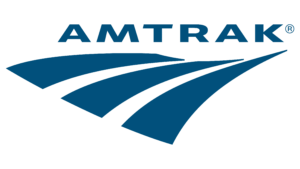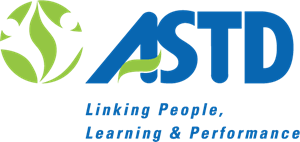Managing and
Supervising Effectively
Improving Your Managerial Effectiveness
Series: Essential Management Skills
Course: Improving Your Managerial Effectiveness
Our focus is on knowing yourself and how your behavior affects the actions of your team. We’ll build on and support what has been and is already being provided addressing team dynamics and how understanding others—their goals and values, needs and wants, comfort and stretch areas—can lead to more effective motivation, delegation, conflict resolution and overall team performance.
"Committed to continually improving management, team, and organization performance."
- How Participants Will Benefit
- Topics We Will Address
- Ensure long-term business results by effectively developing people
- Meet the diverse needs of all your team members with proven communication techniques
- Motivate your people
- Anticipate and resolve conflict situations
- Instill a culture based on trust and partnerships
- Increase dialogue and constructive feedback
- Understand the importance of transformational coaching as a tool for partnering with your team
- Use delegation to increase productivity and individual growth
- Growing your organization by continually increasing your team’s levels of competency
- Understanding how your behavioral style influences the actions of others
- Determining the key values that can help you find ways to motivate people
- Dealing with conflict
- Knowing the behavioral indicators that lead to effective team performance
- The transformational coach: creating a learning partnership with your employees
- Learning how effective delegation benefits the individual and the organization
- Improving your skills in managing and leading change
- Managing performance and growth: applying the concepts you’ve learned to a simulated case
Improving Your Managerial Effectiveness
- Learning Objectives
- The Learning Workplace
- How Others See Us—The Manager’s Style
- Managing Teams
- The Transformational Coach—Partnership Coaching
- Style and Motivation
- Managing Conflict
- Delegation of Growth
- Managing Performance and Growth—A Management Simulation
- Ensure Long-Term Business Results by Effectively Developing People
- Meet the Diverse Needs of All Your Team Members with Proven Communication Techniques
- Motivate Your People
- Anticipate and Resolve Conflict Situations
- Instill a Culture Based on Trust and Partnerships
- Increase Dialogue and Constructive Feedback
- Understand the Importance of Transformational Coaching as a Tool for Partnering with Your Team
- Use Delegation to Increase Productivity and Individual Growth
- Define the Value of Participating in This Seminar—to Your Organization and Yourself
- Assess Your Approach to Challenges from Your Staff
- Identify Seminar Topics to Emphasize How to Best Meet Your Learning Priorities
- Identify the Primary Behavioral Characteristics Others See in the Workplace
- Determine How Behavioral Style Influences the Actions of Others
- Plan Actions to Improve Personal and Group Effectiveness Using a Range of Behavioral Styles
- Differentiate a Team from a Workgroup
- Participate in a Successful Team Activity
- Focus on Behavioral Indicators That Lead to Successful Team Performance
- Develop Strategies for Improving the Effectiveness of Teams
- Redefine the Role of the Manager as a Learning Partner
- Contrast Transactional and Transformational Coaching Behaviors
- Assess the Readiness of Participants’ Current Work Environment for Effective Partnership Coaching
- Assess Current Coaching Competencies
- Develop a Plan for Evolving a Trusting Learning Environment
- Select Key Behavioral Approaches to Improve Partnership Coaching Effectiveness
- Determine Key Values That Are Typical to Each Behavioral Style
- Articulate the Relationship between Values and Individual Expectations in Motivating Employees
- Identify What Current Recognition, Reward, and Benefit Systems Provide and/or Lack Motivators of Employee Growth and Performance
- Select Motivators Based on Individual Needs
- See How Proactively Dealing with Conflict Is a Key Skill of Effective Managers
- Assess Your Personal Preferences and Habits in Dealing with Conflict
- Identify Five Primary Modes for Reaching Successful Resolution
- Shift Your Approach Effectively by Recognizing Key Indicators
- Describe Situations to Others That Illustrate the Need for Skill in Using All Approaches
- Promote a Learning Culture That Uses Conflict as a Platform for Building Trust and Enhancing Creativity
- Use Delegating as a Tool for Professional and Personal Growth
- Recognize the Conditions of Risk in Delegating
- Identify Barriers to Effective Delegating
- Assess the Effectiveness of Your Current Delegating Practices
- Know When Not to Delegate
- Approach Performance Management of Your Work Unit Using All of the Seminar Concepts in a Simulated Case
- Experience Team Dynamics
- Practice Successful Team Behaviors
- Assess Your Learning from the Seminar
- Identify Strategies That You Will Use Back at Work










Contact
Pinnacle Performance
Improvement Worldwide
United States of America
